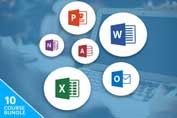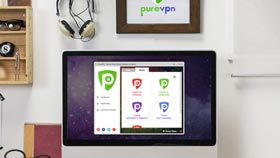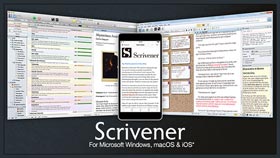Cybersecurity is required in every walk of life and pivotal in keeping your vital details safe - here are some tips to improve your cyber security.
You Are A Target
You should never say that something will not happen to you. If you are online, you are at risk and the stakes are very high. Your personal data and financial well-being are risked and the reputation and standing of the university as well.
Campus computer security is everyone responsibility and it needs to be taken seriously. There are a number of ways that you can protect yourself and others while remaining vigilant to the threats you face.
Keep Software Up To Date
The updates for your programs and operating system have to be installed as this is critical to online safety. You should always have the latest security updates for all of your devices. The best solution will be to turn on Automatic Updates for your operating system.
You should also look at using web browsers that have frequent and automatic security updates like Firefox and Chrome. All of the plug-ins and add-ons for the browser should also be up to date. There are also certain tools that you can use which helps you find software on the computer which needs to be updated. Capita ITR have plenty of details on security.
Avoid Phishing Scams
You need to be aware of any suspicious emails or phone calls that you get. Phishing scams are a constant threat and make use of social engineering to try to trick you into providing personal information. Some of the information they will try to get includes your credit card information, banking information or login ID and password.Phishing scams are carried out via social media, text, and phone, but are more common in emails. You need to be careful with any official looking emails or phone calls that ask you for sensitive information. There are a lot of resources that you can use which will help you identify phishing scams and protect yourself.
Practice Good Password Management
All of us have more passwords than we can actually manage and it is very easy to take the shortcut of using the same password for multiple accounts. Instead, you should look at using a good password management program to help you manage your strong password for all of your accounts. These programs will generate a unique and strong password for each of your accounts automatically and will remind you to update the password regularly. There are a lot of these programs on the market, but you need to ensure that it is secure.There are some other password tips that you should keep in mind as well:
- Always use long passwords of 20 characters or more
- Have a strong mix of characters and never use the same password for multiple accounts
- Never share your passwords with other people and do not write them down
- You need to update your password periodically and should do this at least every 6 months.
Be Careful Where You Click
You need to avoid visiting any unknown websites or downloading anything from unknown sources. These are the sites that are more likely to have malware which will automatically and silently compromise your computer. You also need to be careful with links in emails or attachments unless you know exactly who sent them to you. You can also get browser add-ons which prevent the automatic downloading of content or scripts which can contain malicious code.Never Leave Your Device Unattended
The technical security of your device is important, but you should never forget about the physical security. If you are going to be leaving your device unattended for a prolonged period of time, you need to lock it so other people cannot use it. You should also look at keeping all of your sensitive data on an external hard drive or a flash drive. If you have a desktop system, you should shut it down when you are not using it or lock the screen.
Protect Your Sensitive Data
You need to be aware of the sensitive data that you come into account with and understand the associated restrictions. There are different data protection levels and you need to know what they are. Some of the general rules to know include:- Keep sensitive data off your mobile, laptop or workstation.
- When sensitive files are no longer required, remove them securely from the system.
- Always use encryption when you are transmitting and storing sensitive information.















 PureVPN Discount Coupon Code 84% Off for Lifetime Subscription
PureVPN Discount Coupon Code 84% Off for Lifetime Subscription Scrivener Discount Coupon for Windows and Scrivener 2 for MAC - 35% Off
Scrivener Discount Coupon for Windows and Scrivener 2 for MAC - 35% Off Roadmap Planner Discount Coupon 95% Off for Lifetime Professional Plan
Roadmap Planner Discount Coupon 95% Off for Lifetime Professional Plan Bizplan Premium Discount Coupon 97% Off for Lifetime Subscription
Bizplan Premium Discount Coupon 97% Off for Lifetime Subscription